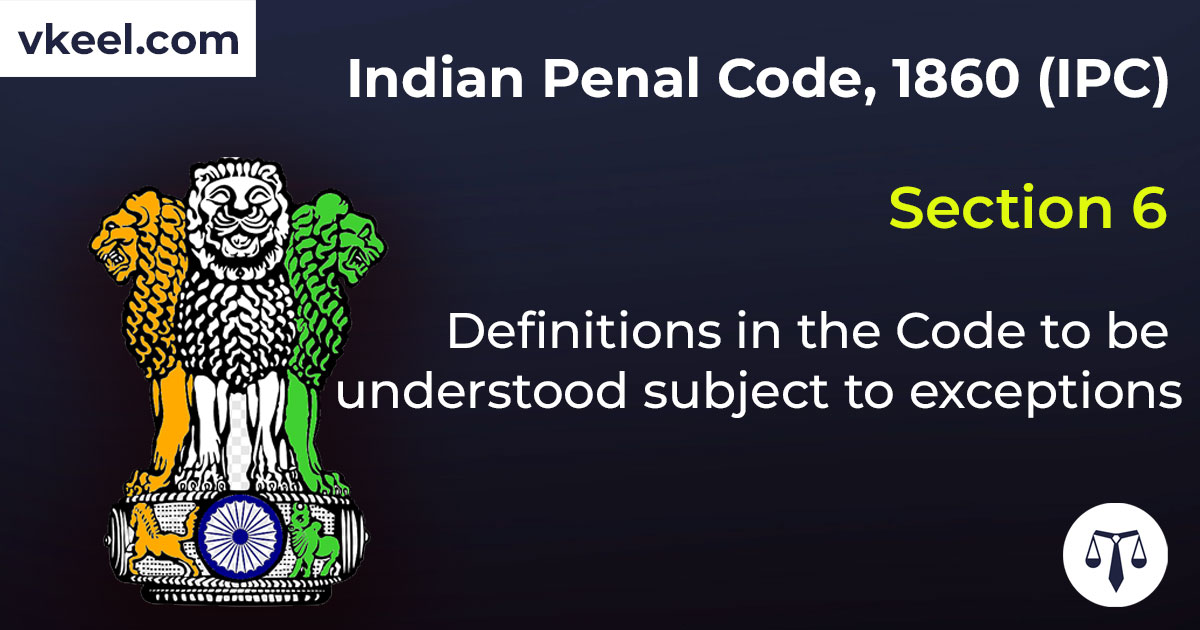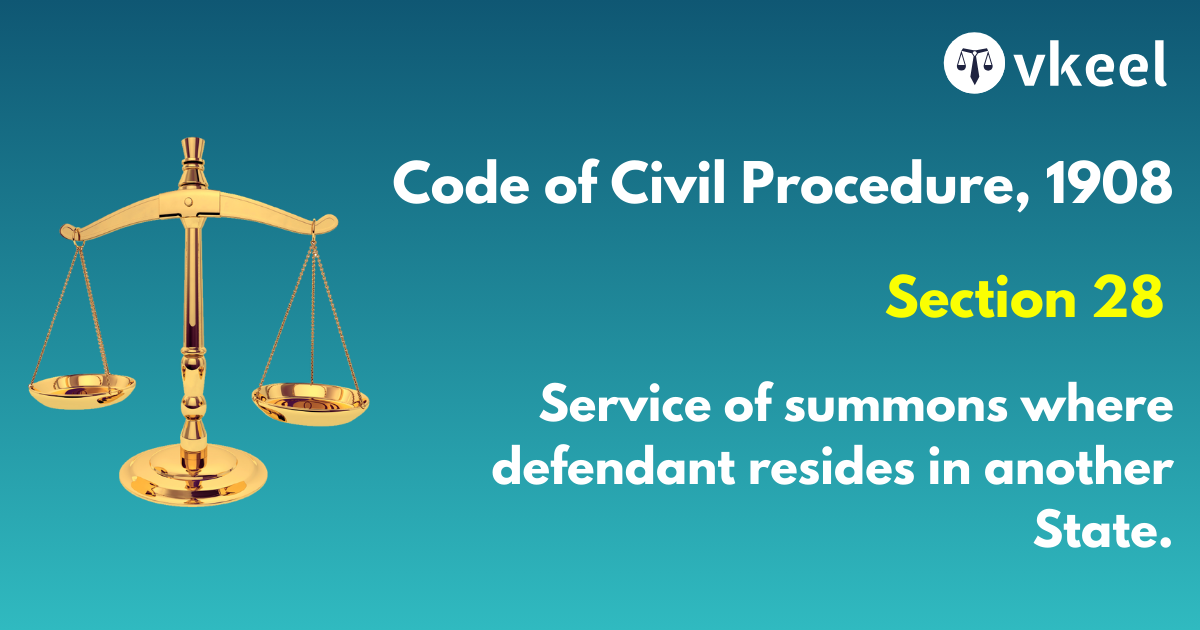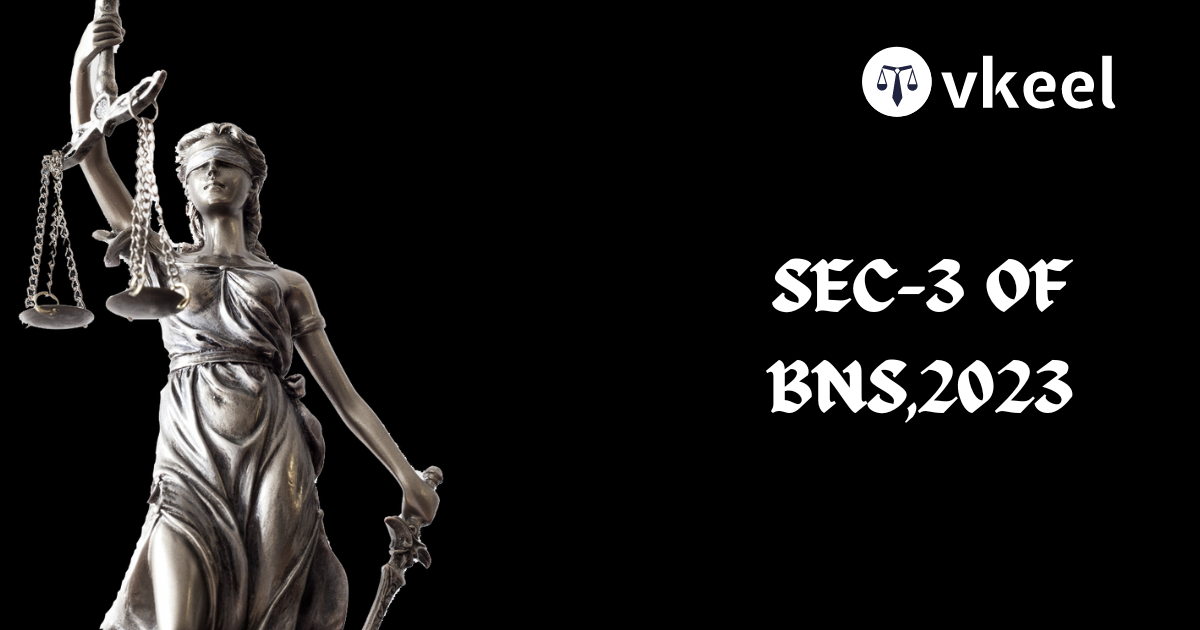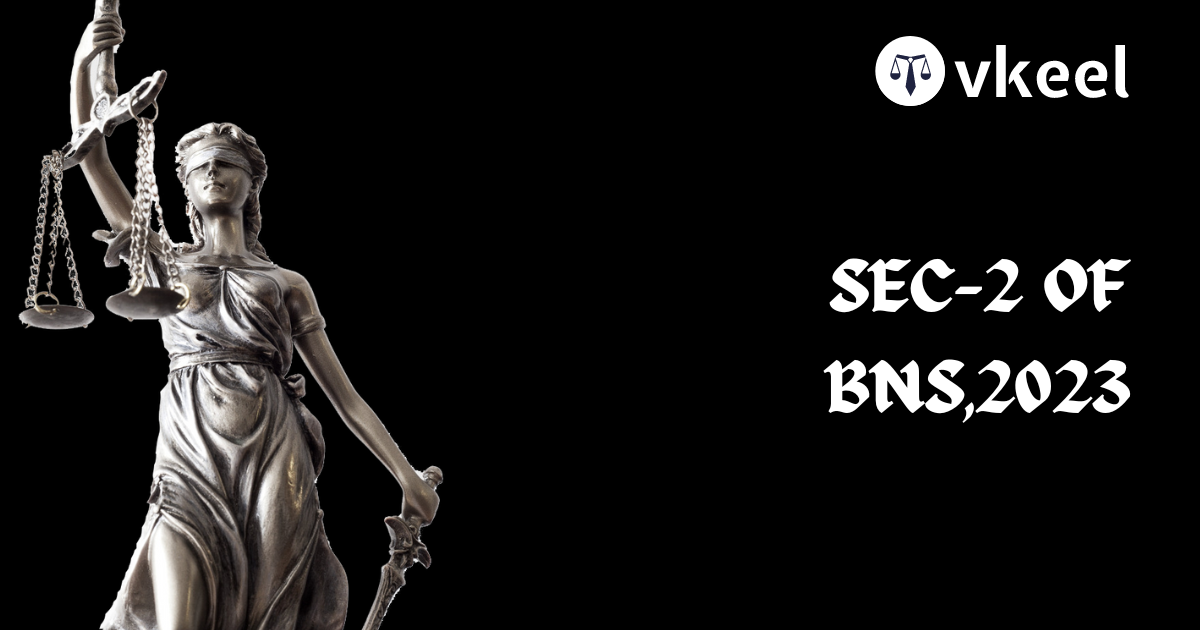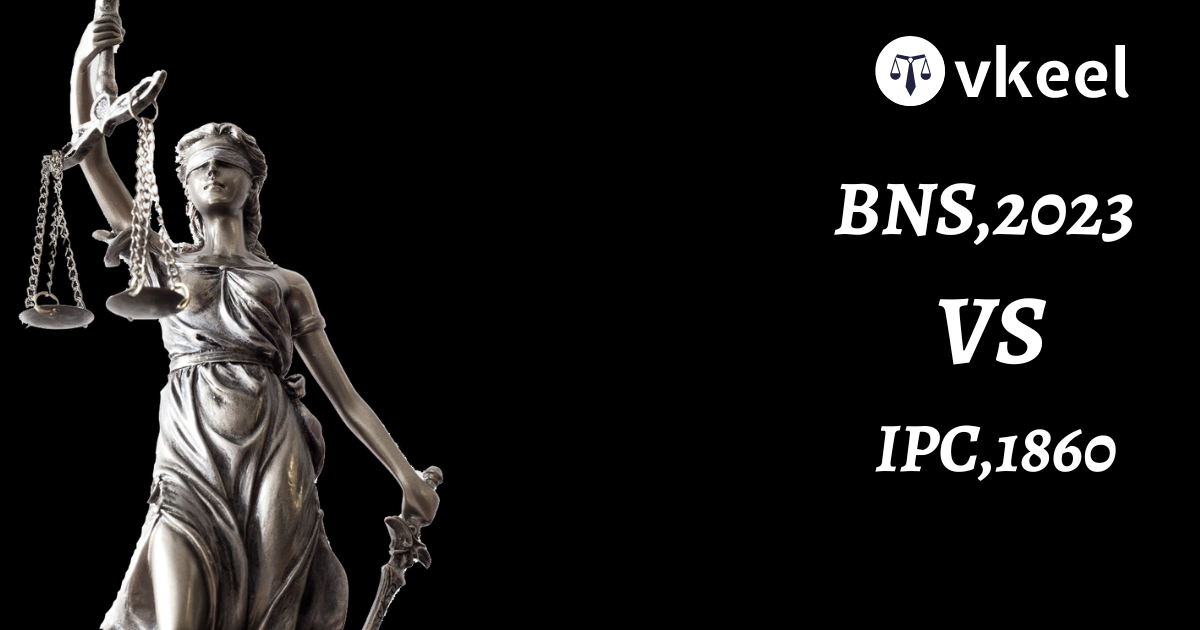Section 6 Indian Penal Code 1860 (IPC) – Definitions in the Code to be understood subject to exceptions
By Vkeel Team
Table of Contents
Description
“Section 6 Indian Penal Code 1860 (IPC)”
Throughout this Code every definition of an offence, every penal provision, and every illustration of every such definition or penal provision, shall be understood subject to the exceptions contained in the Chapter entitled “General Exceptions”, though those exceptions are not repeated in such definition, penal provision, or illustration.
Illustrations
(a) The sections, in this Code, which contain definitions of offences, do not express that a child under seven years of age cannot commit such offences; but the definitions are to be understood subject to the general exception which provides that nothing shall be an offence which is done by a child under seven years of age.
(b) A, a police-officer, without warrant, apprehends Z, who has committed murder. Here A is not guilty of the offence of wrongful confinement; for he was bound by law to apprehend Z, and therefore the case falls within the general exception which provides that “nothing is an offence which is done by a person who is bound by law to do it”
Exceptions to the Definitions Under Section 6 of the Indian Penal Code 1860
The Indian Penal Code (IPC) of 1860 is a comprehensive criminal code that defines the offences and punishments for criminal acts in India. Section 6 of the IPC defines the exceptions to the definitions of offences given in the code. These exceptions are important as they provide a legal defence to those accused of a crime.
The exceptions to the definitions of offences given in Section 6 of the IPC are divided into two categories: general exceptions and special exceptions. The general exceptions are those that apply to all offences, while the special exceptions are those that apply to specific offences.
The general exceptions include acts done in good faith for the benefit of a person without his consent, acts done in good faith for the benefit of a child or insane person, acts done in good faith for the benefit of a public servant, and acts done in good faith for the benefit of a person without his consent.
The special exceptions include acts done in good faith for the benefit of a person under twelve years of age, acts done in good faith for the benefit of a person under eighteen years of age, acts done in good faith for the benefit of a person under twenty-one years of age, and acts done in good faith for the benefit of a person under twenty-five years of age.
In addition, Section 6 of the IPC also provides for certain exceptions to the definition of offences that are applicable to certain classes of persons. These include acts done in good faith by a husband for the benefit of his wife, acts done in good faith by a public servant in the discharge of his official duty, and acts done in good faith by a person in the exercise of his right of private defence.
It is important to note that the exceptions provided in Section 6 of the IPC are not absolute and can be overruled by other provisions of the IPC. Furthermore, the exceptions are subject to interpretation by the courts and may vary depending on the facts of the case. Therefore, it is important to consult a legal expert to understand the implications of the exceptions in a particular case.
Definition of “Public” Under Section 6 of the Indian Penal Code 1860
Section 6 of the Indian Penal Code 1860 defines the term “public” as “the public generally, or any class of the public”. This definition is used to determine the scope of a crime and the punishment that may be imposed for it.
The term “public” is used to refer to a group of people who are not related to each other, but who share a common interest or purpose. This could include a group of people who are members of a particular profession, or who are members of a particular religion or ethnicity. It could also include a group of people who are members of a particular political party or who are members of a particular social class.
The term “public” is also used to refer to a group of people who are affected by a particular action or event. This could include a group of people who are affected by a particular law or policy, or who are affected by a particular decision made by a government or other authority.
The term “public” is also used to refer to a group of people who are affected by a particular crime. This could include a group of people who are victims of a particular crime, or who are witnesses to a particular crime.
The term “public” is also used to refer to a group of people who are affected by a particular punishment. This could include a group of people who are affected by a particular sentence imposed by a court, or who are affected by a particular fine imposed by a court.
The term “public” is also used to refer to a group of people who are affected by a particular act or omission. This could include a group of people who are affected by a particular act of negligence, or who are affected by a particular act of omission.
The term “public” is also used to refer to a group of people who are affected by a particular event or occurrence. This could include a group of people who are affected by a particular natural disaster, or who are affected by a particular act of terrorism.
The term “public” is also used to refer to a group of people who are affected by a particular situation or circumstance. This could include a group of people who are affected by a particular economic crisis, or who are affected by a particular political crisis.
The term “public” is also used to refer to a group of people who are affected by a particular decision or action taken by a government or other authority. This could include a group of people who are affected by a particular decision made by a government or other authority, or who are affected by a particular action taken by a government or other authority.
Definition of “Person” Under Section 6 of the Indian Penal Code 1860
The Indian Penal Code (IPC) of 1860 is the main criminal code of India. Section 6 of the IPC defines the term “person” for the purpose of the code. According to this section, the term “person” includes any company or association or body of persons, whether incorporated or not. It also includes any legal representative, agent, or officer of such company, association, or body of persons.
The definition of “person” under Section 6 of the IPC is broad and comprehensive. It covers both natural and artificial persons. Natural persons are those who are born and have a physical existence, while artificial persons are those that are created by law, such as companies and associations. This definition also includes legal representatives, agents, and officers of such companies, associations, or bodies of persons.
The definition of “person” under Section 6 of the IPC is important for the purpose of criminal law. It is used to determine who can be held liable for a crime. For example, if a company commits a crime, the company itself can be held liable, as well as any of its officers, agents, or representatives.
In conclusion, the definition of “person” under Section 6 of the IPC is broad and comprehensive. It covers both natural and artificial persons, as well as legal representatives, agents, and officers of such companies, associations, or bodies of persons. This definition is important for the purpose of criminal law, as it is used to determine who can be held liable for a crime.
Description Source: indiacode
Disclaimer:
The information provided in the article is for general informational purposes only, and is not intended to constitute legal advice or to be relied upon as a substitute for legal advice. Furthermore, any information contained in the article is not guaranteed to be current, complete or accurate. If you require legal advice or representation, you should contact an attorney or law firm directly. We are not responsible for any damages resulting from any reliance on the content of this website.

